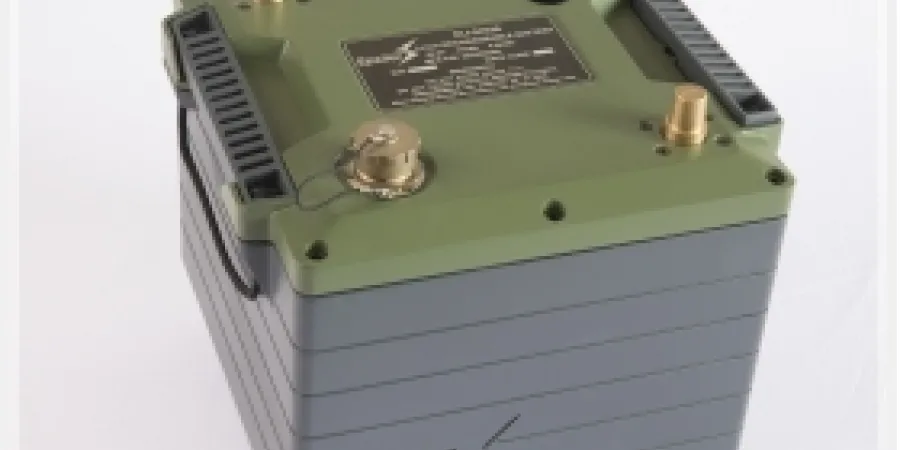Epsilor’s 6T Battery Currently Evaluated in Five NATO Countries
IsraelDefense
| 17/01/2019
Epsilor, an internationally recognized developer and manufacturer of mobile energy products for defense and aerospace applications, recently announced that its innovative 6T battery is being evaluated and field-tested by industrial clients and armed forces in five NATO countries.
The IDF recently completed a year-long testing process during which Epsilor’s 6T was evaluated in different climate and field conditions (desert, mountains, rocky areas, etc.).
Epsilor’s lithium-ion vehicular batteries offer four times the energy and approximately half the weight of lead-acid batteries of similar size, the company says. The advanced batteries serve a wide range of applications in the automotive, military and marine markets.
The 6T batteries have an extremely long operational and life cycle which results in a significantly lower environmental and logistic footprint, the company adds. They are optimized for next-generation armored vehicles (MBT, tracked and wheeled IFV) and designed as drop-in replacements for traditional lead-acid batteries in legacy vehicle fleets.
Epsilor will showcase its lithium-ion 6T NATO-standard battery product line at International Armored Vehicles (IAV) 2019, which will take place in London January 21–24, 2019. The company will also present its 12V/110Ah (1.45kWh) LiFePO4 battery.
“The fact that our 6T product family is being evaluated by many parties is a clear indication of the great interest our solutions draw,” said Epsilor President Ronen Badichi. “At the International Armored Vehicles trade show and conference, we look forward to meeting with new clients who need a smart drop-in replacement for traditional batteries.”
At the conference, Epsilor will present for the first time an improved version of the 6T which meets the requirements of the MIL-PRF-32565A Amendment 1 for rechargeable, sealed, 6T lithium-ion batteries issued by the US Army Tank Automotive Research Development and Engineering Center (TARDEC).
Epsilor, an internationally recognized developer and manufacturer of mobile energy products for defense and aerospace applications, recently announced that its innovative 6T battery is being evaluated and field-tested by industrial clients and armed forces in five NATO countries.
The IDF recently completed a year-long testing process during which Epsilor’s 6T was evaluated in different climate and field conditions (desert, mountains, rocky areas, etc.).
Epsilor’s lithium-ion vehicular batteries offer four times the energy and approximately half the weight of lead-acid batteries of similar size, the company says. The advanced batteries serve a wide range of applications in the automotive, military and marine markets.
The 6T batteries have an extremely long operational and life cycle which results in a significantly lower environmental and logistic footprint, the company adds. They are optimized for next-generation armored vehicles (MBT, tracked and wheeled IFV) and designed as drop-in replacements for traditional lead-acid batteries in legacy vehicle fleets.
Epsilor will showcase its lithium-ion 6T NATO-standard battery product line at International Armored Vehicles (IAV) 2019, which will take place in London January 21–24, 2019. The company will also present its 12V/110Ah (1.45kWh) LiFePO4 battery.
“The fact that our 6T product family is being evaluated by many parties is a clear indication of the great interest our solutions draw,” said Epsilor President Ronen Badichi. “At the International Armored Vehicles trade show and conference, we look forward to meeting with new clients who need a smart drop-in replacement for traditional batteries.”
At the conference, Epsilor will present for the first time an improved version of the 6T which meets the requirements of the MIL-PRF-32565A Amendment 1 for rechargeable, sealed, 6T lithium-ion batteries issued by the US Army Tank Automotive Research Development and Engineering Center (TARDEC).



